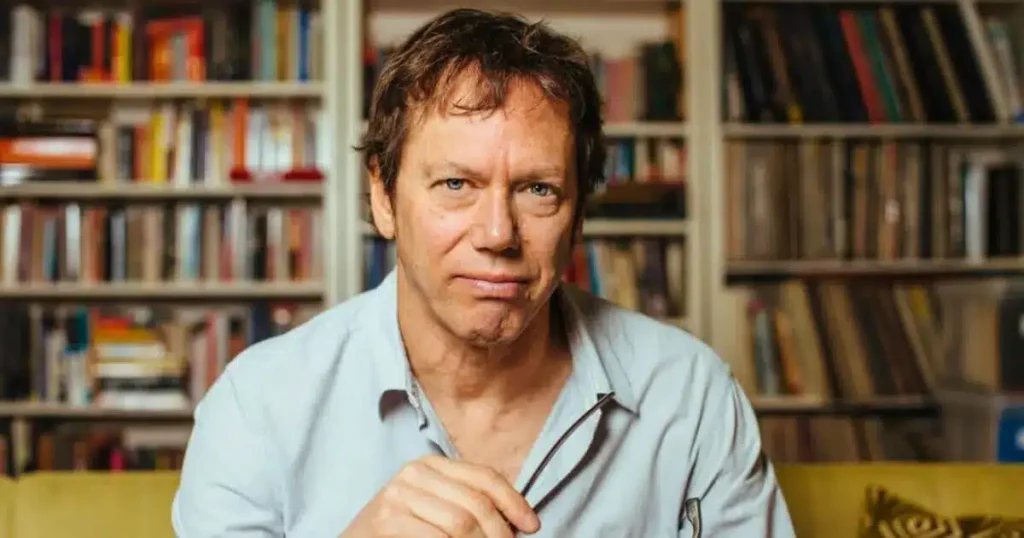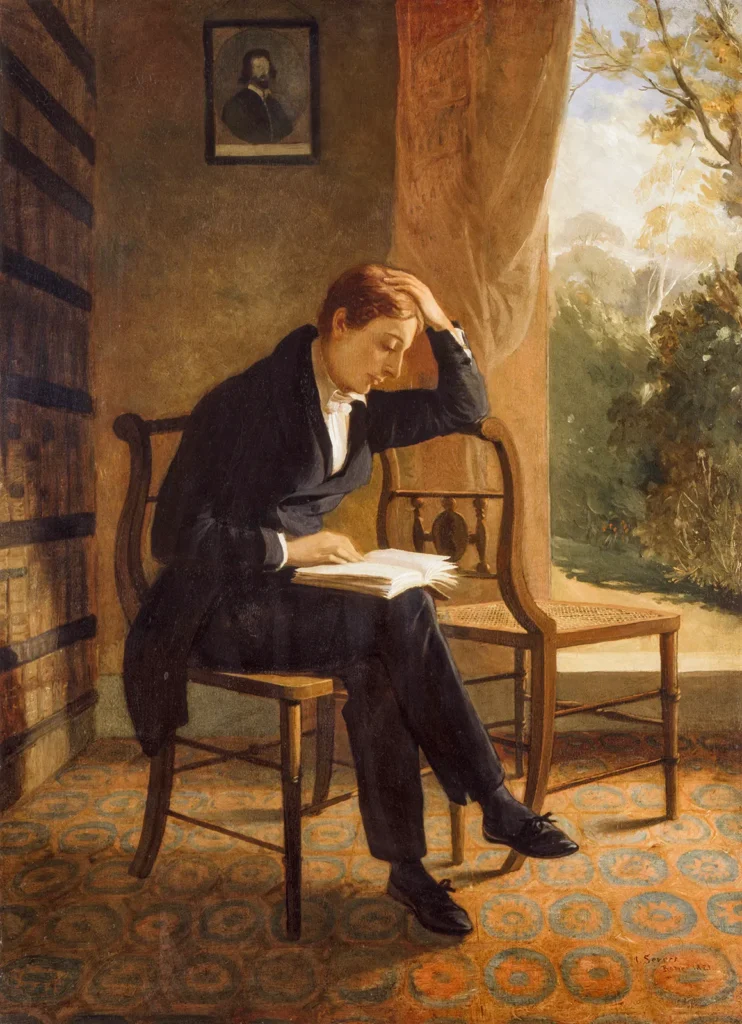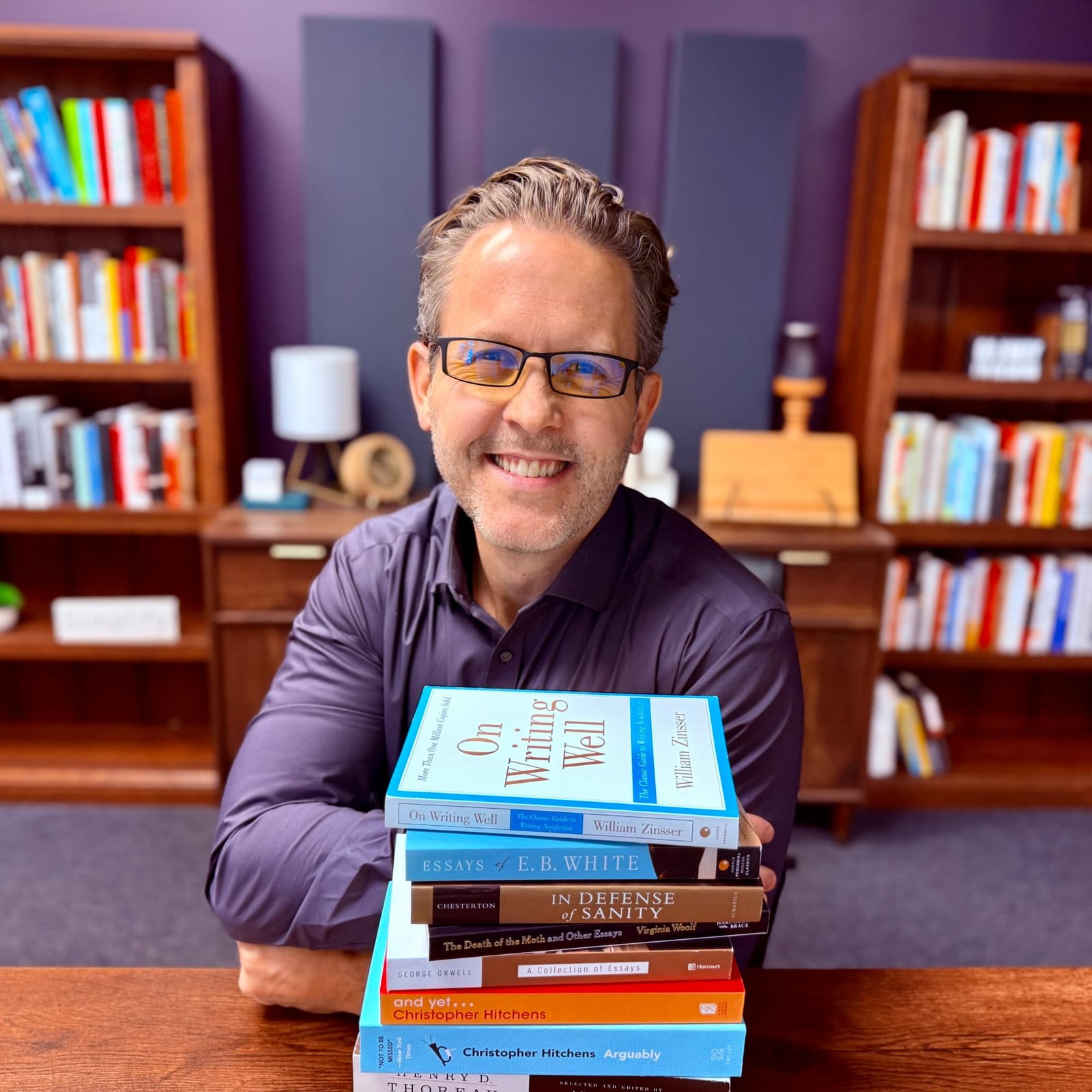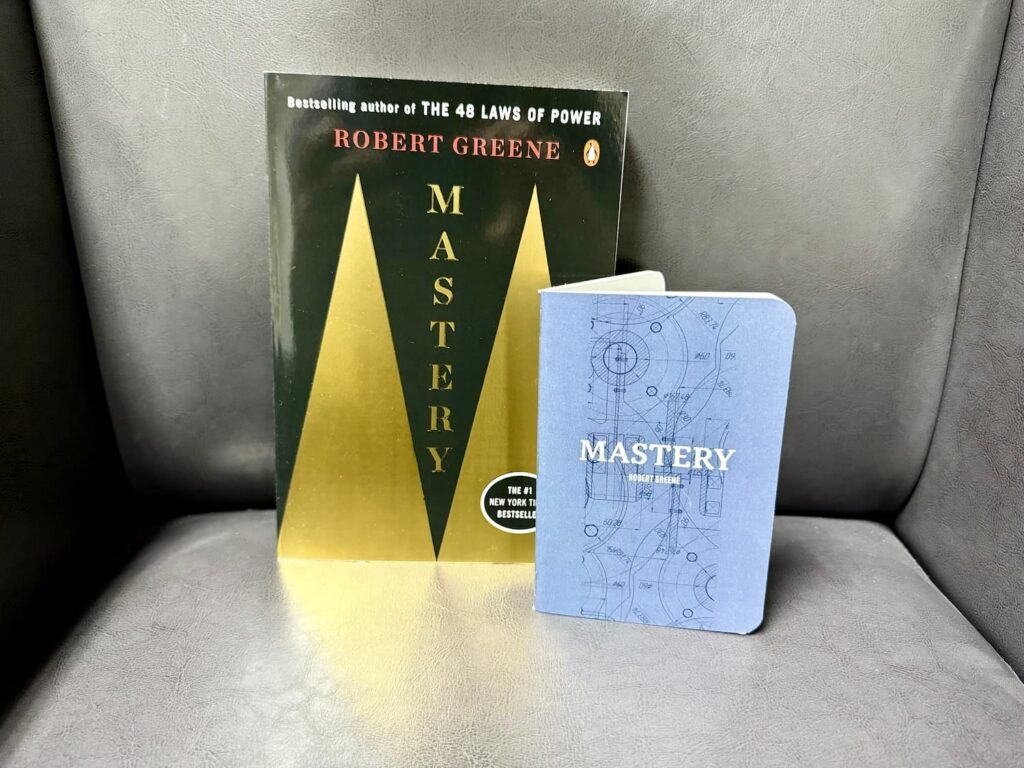Robert Greene, author of Mastery and other psychologically juicy books, shares a powerful tip for achieving a higher level of skill in any field — and it’s connected to how you read.
Before I share his secret, let’s figure out WHAT you should master in your life. In the first section of his book, Greene suggests that you have a Life’s Task, something you’re meant to do.
I think that’s true. I’ve spent much of my life searching for the “thing” that was me. I’ve played guitar, written poetry, started businesses, etc. It took over 40 years to find my Life’s Task, but I finally found it: I’m a writer.
Boy, it feels good to say that out loud! I AM A WRITER! I want to master the craft of essays, non-fiction, and philosophy. Do you know what you want to master? The question should make your skin tingle.

Robert Greene, Author of Mastery
“You possess a kind of inner force that seeks to guide you towards your Life’s Task,” (Greene 19). Do you feel that constant pull to figure out what your life should mean? In Walden, Henry David Thoreau suggests that, “If a man does not keep pace with his companions, perhaps it is because he hears a different drummer. Let him step to the music which he hears, however measured or far away.”
But how do you find your Life’s Task? “In order to master a field, you must love the subject and feel a profound connection to it,” (Greene 31). OK, that’s helpful. As you search for your Life’s Task, it must have an element of obsession.
Can you think of what that might be for you? What is the one area of your life that you’re secretly obsessed with? The one thing that, if you could do it every day regardless of money, would bring you complete happiness?
That is your Life’s Task.
Now You Need a Mentor
To become a master, you need a mentor. Greene suggests that the path to mastery begins with an apprenticeship. “You must choose places of work that offer the greatest possibilities for learning,” (Greene 55). It makes sense that if I want to be a great writer, I should quit my job as an accountant and pick up work as a journalist or an editor. But that’s not going to happen. So, for the rest of us mortals who can’t run off and do as we please, how can we still become masters of our craft?

In that case, Greene suggests that we do as the great poet John Keats (1795-1821) did. “Keats had developed a love for literature and reading. To continue his education, he would return to his school in his off-hours and read as many books as he could in the library. Sometime later, he had the desire to try his hand at writing poetry, but lacking any kind of instructor or literary circle he could frequent, the only way he knew to teach himself to write was to read the works of all the greatest poets of the seventeenth and eighteenth centuries,” (Greene 79).
There it is. If you don’t have direct access to a master, you can always get access to them through their books. Once you know your Life’s Task, find the very best books on that topic, and begin to craft a personal education that supports true mastery.
As a writer, I’ve put together the following books for my own study and absorption:
- On Writing Well by William Zinsser (My absolute favorite)
- On Writing by Stephen King
- The Sense of Style by Steven Pinker ( I seem to have a thing for people with variations of the name Stephen).
- Dreyer’s English by Benjamin Dreyer
- All essays by Ralph Waldo Emerson, Henry David Thoreau, Christopher Hitchens, George Orwell, Virginia Woolf, G.K. Chesterton, Michel du Montaigne, and E.B. White.
It’s like going to Hogwarts as a first year student. You get to buy the books that will make your life magical. Accio!
This approach to choosing books helps keep your TBR (To Be Read) list in check. Just because a book is a friend’s favorite beach read or a New York Times bestseller doesn’t mean it’s right for you. With limited time each day, focus on books that align with your goals and interests.
Once you have your books, you face a very real danger: never reading them. Let’s talk about that next.
Why You Should Read Only the Best Books
When you buy a book, you do so with the intention of reading it. If that’s the case, then why are there so many books on your shelves that have yet to be opened?
It’s because they’re not interesting enough. Think about it. At night, after a long day of work, you have a choice to make: Should you read the book or should you …(fill in the blank)?
If you’re doing other things, it’s because you believe those things are more interesting. And that’s OK. It’s a signal that you’ve been buying books that have nothing to do with your Life’s Task. You bought them in the heat of passion, but now the love affair has dwindled to a flicker. Don’t feel bad about this. It’s called self-discovery.
Remember, your Life’s Task has an OBSESSIVE element to it. You literally can’t stop thinking about it. If you get books related to this obsession, you’ll want to spend all night reading them rather than washing the dishes or going out for a drink with your friends. Your obsession will act like a magnet and keep you focused. Boring books have very little if any magnetic power.
Here are a few books I bought in the heat of passion that I’ve never read and will probably never get to:
- Confessions of an Advertising Man by David Ogilvy – I bought this as a young business owner thinking it would help me get more customers. It’s a classic in the business world, but I’m just not interested in advertising books. I’d rather swim with sharks.
- Brain Food by Lisa Mosconi, PhD – I made a video about this book and how I wanted to read it to improve my health. I haven’t read it yet, and I likely won’t get to it. The book is incredible and well researched, I’m just not interested enough in food science to choose this book over my philosophy texts.
- The Books of EarthSea by Ursula K. Le Guin – I’ll never get to this, not because she’s a bad writer (she’s incredible), but because I don’t love fantasy. I have too many interests that overpower the fantasy genre, so when I reach for a book, my hand drifts towards books related to my Life’s Task. Yes, I do read for entertainment, but I’m a spooky thriller or moving drama kind of guy. Again, that’s just fine. It’s called self-discovery.
Why YouTube Learning Doesn’t Count
Many will think, “I don’t need to buy and read books. I can learn anything on YouTube in a fraction of the time.”
That’s wrong. You actually learn very little on YouTube. It feels like learning, but in reality it’s more like surface-level skimming. Each topic is massaged by a YouTube creator to encourage more clicks and watch time. They’re incentivized to do and say whatever it takes to keep you glued to the screen. YouTube doesn’t actually want you to go and try things. If you do that, they lose revenue. Instead, the algorithm feeds you another shiny video. Trust me, I know because I have a YouTube channel. I’m one of those creators. It’s an ugly business that feels warm and fuzzy.
Let’s be honest, what percentage of time do you actually stop the video and apply what you’re learning? I’d say it’s pretty low. We can spend hours “learning” without actually getting smarter. The YouTube University degree does have value, but it won’t make you a brain surgeon and it won’t make me a better writer.
That’s why you should craft a library of books that will help you master your Life’s Task. “When it comes to mastering a skill, time is the magic ingredient,” (Greene 77). There are no shortcuts to becoming a master. A 3-minute YouTube video will not get you there. Instead, design a proper and logical plan of study with only the best books on the subject. Spend real time with the masters of your craft, learning from them and doing everything their books teach you to do.
Put yourself in my shoes. Let’s pretend that I get to go to school each day with the authors I mentioned earlier. Can you imagine going to first period with William Zinsser to improve your non-fiction arguments? After that, you head to second period with Stephen King to learn storytelling, and then on to an afternoon walk with Thoreau for a chat about living deliberately. I don’t know about you, but that’s far more interesting than random writing videos on YouTube created by people who have never been published.
If you want to master your Life’s Task, it’s time to take responsibility for your own education. Learn to see yourself as an apprentice to the masters, get their books, and get to work.
p.s. – For those wanting to read Mastery by Robert Greene, you can get a copy of it in my bookstore along with my custom Mastery notebook to keep track of what you learn.
Thanks for reading.
Until next time, read slowly – take notes – apply the ideas.
-Eddy
———————————-
Works Cited:
Greene, Robert. Mastery. Viking, 2012.
Thoreau, Henry David. Walden, or, Life in the Woods ; and Civil Disobedience. First Vintage Classics edition, Vintage Books, a division of Random House LLC, 2014.


I really enjoyed reading this. I am 72, still working in a job that I love even after 41 years of doing it. It’s lucrative and easy. But my new Life Task, for 3 years, is to perfect virtue and attain eudamonia ala Stoicism. I read everyday, many texts thousands of years old. You really hit it with your posting above. I get to hang out with the best minds! Life is so rich when you have passion. So glad I found u. That said, I don’t like Greene. I have not read Mastery but much of what he said in other books I found repulsive.